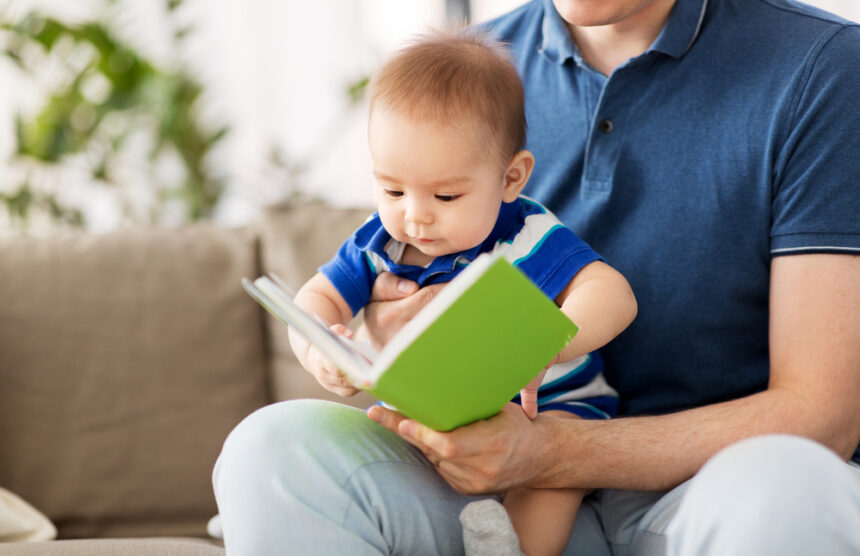Russ Roberts: We’re going to base our conversation today on an essay that you recently posted on your Substack post, The Intrinsic Perspective. Let’s start with the bold claim that parenting helps you grow as a person. This is the first part of your essay, but you clear your throat and start by saying that your child-free life was a little boring, even though you did drugs at Burning Man. So talk a little bit about that transition from child-free to having kids. You have two kids, by the way.
Eric Hoel: Yes, I think so. Just to be clear, myself Becoming a better person. I was careful to state in my writing that I don’t know if parenting is the right choice for everyone, and while some people may have strong opinions about not being a parent, I believe it’s a personal choice.
But in my own psychology, there was a huge phase shift before and after that. And to put it in a way that I probably didn’t say in the essay, but that I hope you understand, people are pragmatic monsters when it comes to themselves. And it’s very hard to realize this, but life and your preferences — what movies you watch, what you eat, all of these things — are a constant, almost exhausting game of optimization.
I used to get on a plane and I’d think, “Oh, what book am I going to read? What am I going to watch on the plane? And what snacks am I going to bring?” And all that stuff. Now, when I get on a plane, I don’t think about that at all. Honestly, it’s a relief in a way to not be a utility monster. And I don’t think I was particularly special in this respect. I think it’s very hard to notice this unspoken background noise. Maybe saints and some people notice it and actively fight it every day, but I don’t think most people do. And letting go of the exhaustion of being a utility monster for my own preferences has been one of the most exhilarating parts of parenting.
Russ Roberts: Yes, and you don’t want to share Cheez-Its or Chex Mix with a little one, two of my guilty pleasures on airplanes.
Let me put it a little differently. You thought I was an economist and said “utility monster.” I think I’m a little worse than that. I think I’m more of a fun monster. Utility defined in the narrowest sense. What would I most enjoy in those three hours? On an airplane, I’m limited, so I’ll find a book, a movie, or some unappetizing snack of my choice, like Cheez-Its. Maybe an apple.
And I think having kids certainly forces you to realize that you’re not the center of the universe, right? It’s another way of saying what you’re saying, which is that you force yourself to spend a lot of time worrying about very helpless creatures.
You acknowledge at the beginning of your article that there are some pretty tough parts to raising children, including flying. For young people who love to travel, the potential added burden of bringing along children is likely a huge disincentive for some people to have children. So let’s start by acknowledging that raising children can be pretty harrowing and involve a lot of hard work. And you’re not naive about that.
Eric Hoel: Yep, I talked a bit about this in the article when I was speculating about why the “parenting is actually great” genre of articles hasn’t been all that popular in certain media, especially lately. Articles with titles like “Parents Who Regret Having Kids” are all the rage. Time MagazineThese are fairly popular article genres, at least in places like: time or The New York Times or Parents And so on. And some of them are pretty harsh, right? But they ring true. As someone put it: time This piece has been described as a “domestic concentration camp.” Right? And I think it captures one aspect of how difficult it is to raise children.
But if I had to guess, why is it that for every article about parenting regret, there’s no article that responds with “actually, parenting is wonderful”? And I think there’s one big problem: parenting is very hard, and sometimes extremely hard. And it’s sad. And sometimes it’s deeply sad. And you disappoint yourself. And your kids disappoint you. And all of this combines to make anyone who says “actually, parenting is wonderful” an easy target for criticism.
The “parenting is wonderful” genre is a very delicate genre. I forget what Kurt Vonnegut said about literary criticism, but it’s like putting on a suit of armor to attack an ice cream sundae. And that’s the “parenting is wonderful” essay. It’s like an ice cream sundae. And you can find a wonderful way to poke holes in it.
For example, one of the reasons I personally think the genre isn’t very popular is because it’s saying things that, to some extent, everyone knows. 70% of Americans have kids. So new parents go through a phase where all of a sudden all of this feels new, but it’s not world-changing information. It’s information that everyone knows, they’re just experiencing it.
And this is, I’ll borrow from another philosophical example. Mary the color scientist is a famous argument in the philosophy of mind by Frank Jackson. And it’s kind of what Daniel Dennett called the “intuition pump.” But in this intuition pump, Mary the color scientist grew up in a black and white room and is a very brilliant neuroscientist. She specializes in vision, but she’s never actually seen color. She’s only seen black and white.
And so a question arises: Assuming she knows all about visual processing in the brain, think back to Dorothy the first time she saw color. The Wizard of Oz When she goes out to Oz and the colors come in, is she going to learn anything new? And if she does learn something new, is that information not already covered by the neuroscientific information that she has?
And this is a thought pump used to justify explanatory gaps about how to explain consciousness.
But in a way, this is a good explanation of parenting because everyone tell me Even if you have an outside view of what parenting is like, you will find that your actual experience is completely different from what you know from the outside.
And I think this is another reason why the “Parenting is Awesome” essay isn’t very popular: because it’s just expressing know-it-all information that everyone already knows, but just doing it from the inside.
Russ Roberts: Yes, this is an article for people who already have children to feel good about themselves.
Russ Roberts: Usually, people who don’t have children don’t find it convincing. And part of the reason for that is, as we just said, you can’t imagine it until you’ve experienced it. We’ve talked about this many times on this show. Adam Mastroianni talks about how your brain is connected to your ears. You hear something that sounds reasonable, but you can’t internalize it until you experience it. And I think, teeth There’s a whole “terrible parenting” genre, and some parents regret it.
On the other hand, I think it’s hard for parents to admit they don’t love their children. I think that’s very painful for most parents. Even if it’s out of respect (or disrespect?) for your child, telling them you regret having them is awful. I can’t think of anything more cruel than that.
Russ Roberts: So I think the literature on this is confused. I think it’s kind of silly to think about whether having children makes you happier or not on a scale of 1 to 5. I’ll talk about other richer ways to think about the enjoyment and virtue of children later. But I think there’s a natural cherry-picking that’s happening between parents and non-parents. And it’s very reasonable.
I was sitting in an airport once, talking to strangers, because I was writing a book about this issue.Wild Issues— Decisions like whether to have kids or not, whether to get married or not, I told her that there was a study that looked at happiness in people, and it turned out that single women with no children were the happiest group. And her face literally lit up. She was so happy to hear that. After all, she was single and had no kids. And I had to tell her that it was bad research, and why it was bad research.
There are lots of reasons why a survey can be bad, but the reason this survey was bad was because they literally misunderstood the wording of the question, and I’ll include a link to it.
But I don’t think that “having kids is great, so you shouldn’t have kids” or “having kids is awful, so you shouldn’t have kids” are particularly helpful. That’s because we’re all different. And as you point out in your articles and essays, it’s natural that a lot of people don’t have kids. They don’t want to have kids, and there are good reasons for that. And it doesn’t matter to them that I like being a parent, or that you like being a parent. They’re not you, and they’re not me.
On the other hand, we may be able to get information about things we have never experienced by hearing people talk about them, but this is only information that enters our ears, and it is not clear whether it reaches our brain.
So you’re saying that a lot of teeth It’s boring, it’s miserable, and it restricts you. You haven’t talked much about it, but it restricts you from traveling and other life choices.
You also point out that you are a man, which means that I think the female perspective is much richer than ours, both positive and negative.
Eric Hoel: Yes, you’re right, there’s always a danger in being too attached to your own perspective, but I think the changes that come with raising children are in some ways relatively predictable — they tend to affect people in similar ways.
I’m a big believer in the fact that we have a lot of really good parents in America, and that’s because they buy their kids books, and they love them, and they really enjoy reading to them, and then you go into other people’s houses and you see the exact same books, and their bookshelves look just like yours, even though you’re trying really hard to get your kids to read really interesting books. The Very Hungry Caterpillar It has been on the bestseller list for 19 years.
In the US, there are some parents who are very good parents and who find a lot of meaning in parenting. I think that’s one of the reasons why it’s hard to find a strong influence of parenting. In the US, once you reach a certain socioeconomic level, parents are pretty similar in that they’re all relatively good and put in a lot of effort. Of course, there are parents who aren’t. But I don’t think what’s discussed much is that there are a lot of people who read parenting forums who are at least paying attention to the latest research, doing what they can, and not feeding their kids food that they think may contain microplastics. teeth Parents who are sincere and make every effort in some sense.
So that’s why I say I think there is universality. And in a way, weirdly, this universality prevents us from showing the effectiveness of parenting. There’s interesting research on parenting styles. And it’s always been a little fuzzy and poorly controlled as to which parenting style is most effective, because parents are often very similar and they’re grouped by socioeconomic status, so you end up only measuring socioeconomic status, not parenting. (More on this later, 14:49)







